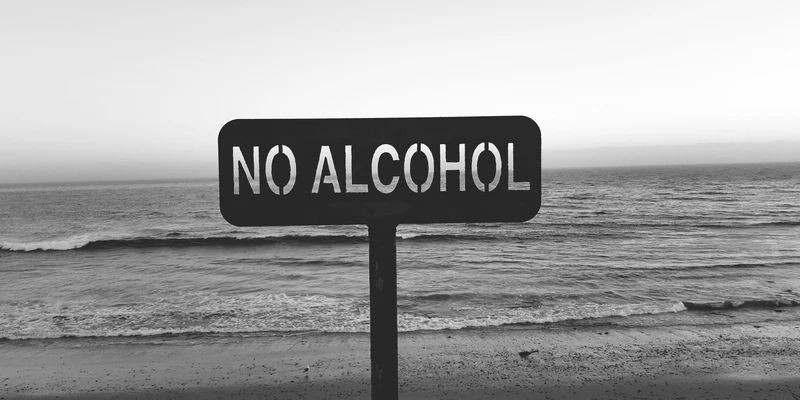
Dra. Emma Collins
Clinical Psychiatrist & Medical Detox Specialist
Treatment for alcohol withdrawal symptoms is a major step in safely managing the physical and psychological effects of stopping alcohol use. Many people underestimate how severe withdrawal can become without proper medical support. Whether symptoms are mild or life-threatening, timely intervention can reduce risks and support recovery.
In this blog, we’ll explore how professional treatment for alcohol withdrawal symptoms works and why clinical care makes a difference in long-term outcomes.
Understanding Alcohol Withdrawal Symptoms
Alcohol withdrawal symptoms develop when someone who has been consuming alcohol heavily over time suddenly reduces or stops drinking. The body and brain, having adapted to alcohol use, struggle to regain balance without it.
This process can cause a range of uncomfortable or even dangerous symptoms. Recognizing these signs early is key to ensuring proper medical care and improving the chances of a safer and stable recovery.
What are the Signs and Symptoms of Alcohol Withdrawal?
Some of the common symptoms include restlessness, shaking, headaches, and nausea. As alcohol withdrawal progresses, you may experience anxiety, irritability, insomnia, and an elevated heart rate.
In severe cases, hallucinations, seizures, or delirium tremens may occur. It’s important to note that the intensity of symptoms depends on the amount of alcohol consumed as well as their overall physical health.
Causes of Alcohol Withdrawal Syndrome
Alcohol has a depressant effect on the central nervous system. With repeated alcohol use, the brain adjusts by increasing excitatory activity to compensate. When alcohol is suddenly removed, this overactivity remains unbalanced and could trigger withdrawal symptoms.
The longer alcohol dependence continues, the more the brain adapts, which makes the withdrawal response more intense. This biological process explains why people with alcohol use disorder or addiction usually face more severe withdrawal when they try to stop drinking alcohol.
How to Diagnose Alcohol Withdrawal
The diagnosis of alcohol withdrawal involves a thorough clinical assessment that includes medical history, current symptoms, and patterns of alcohol abuse. Healthcare professionals often use tools like the Clinical Institute Withdrawal Assessment for Alcohol (CIWA-Ar) to measure symptom severity.
Lab tests may also be conducted to check for electrolyte imbalances or liver function. Early diagnosis helps determine the level of care needed, whether outpatient treatment or residential inpatient management of alcohol withdrawal.

What are the Common Treatments for Alcohol Withdrawal Symptoms?
Managing alcohol withdrawal safely requires medical support. Effective treatment for alcohol withdrawal symptoms helps reduce discomfort and prevent serious complications during the withdrawal process. These treatments may include:
Benzodiazepines
Benzodiazepines are the frontline medications for managing alcohol withdrawal. They help calm the central nervous system, reduce the risk of seizures, and ease anxiety or agitation.
Drugs like diazepam or lorazepam are often used in tapered doses, depending on symptom severity. These medications may be carefully monitored to avoid over-sedation and to support a stable withdrawal process in both outpatient and inpatient settings.
In a comprehensive network meta-analysis including 149 randomized clinical trials with 10,692 patients, fixed schedule regimens of benzodiazepines such as diazepam, lorazepam, and chlordiazepoxide were significantly more effective than placebo in reducing the incidence of withdrawal seizures and in lowering the risk of delirium tremens. This large-scale synthesis reinforces benzodiazepines as the first-line pharmacotherapy for alcohol withdrawal.
Thiamine or Vitamin B1 Supplementation
Chronic alcohol use may lead to vitamin B1 deficiency, increasing the risk of Wernicke’s encephalopathy, a serious neurological condition. Thiamine supplementation is given early in withdrawal treatment to protect your brain function.
It may be administered orally or via injection, depending on your nutritional status. Replenishing this vitamin is a crucial step in preventing long-term cognitive complications during alcohol detoxification.
IV Fluids and Electrolyte Correction
Dehydration and electrolyte imbalances are common in alcohol withdrawal, especially if vomiting or diarrhea is present. IV fluids restore hydration and correct imbalances in sodium, potassium, and magnesium, which are vital for heart and muscle function.
Maintaining fluid balance also supports blood pressure and reduces the severity of physical withdrawal symptoms. This treatment is provided in a hospital or in medically monitored settings.
Hospitalization and Intensive Care
Severe withdrawal cases of alcohol dependence, such as those involving seizures or delirium tremens, may require hospitalization or intensive care. Medical staff provide round-the-clock monitoring, emergency interventions, and support for vital functions.
In these settings, patients can receive medications, oxygen therapy, and cardiac monitoring. Hospitalization ensures safety during high-risk withdrawals and allows for the management of alcohol withdrawal and other medical complications that may arise.

Home-Based Care to Help Treat Alcohol Withdrawal
Supportive care at home can ease mild withdrawal symptoms when done with proper guidance and monitoring.
Hydration and Nutrition
Maintaining hydration is essential during alcohol withdrawal, as dehydration can worsen symptoms like fatigue and confusion. Drinking plenty of fluids helps restore balance. Furthermore, nutritious meals rich in protein, vitamins, and complex carbohydrates support brain function and energy levels.
Supplements such as B-complex vitamins and magnesium may also help, particularly when guided by a healthcare provider familiar with alcohol-related nutritional deficiencies.
Managing Sleep Disturbances
Insomnia and disrupted sleep patterns are common during alcohol withdrawal, so establishing a calming bedtime routine, limiting caffeine, and avoiding screens before bed can improve sleep quality.
Relaxation techniques like deep breathing, meditation, or light stretching may also help settle the nervous system. While over-the-counter sleep aids may seem helpful, they should only be used with medical approval to avoid interactions or worsening symptoms.
Long-Term Strategies to Manage Alcohol Withdrawal
Sustained recovery goes beyond detox. Long-term strategies help manage triggers, prevent relapse, and support healthier routines after withdrawal ends.
Therapy and Behavioral Interventions
Therapeutic support is key to addressing the emotional and psychological aspects of alcohol dependence. Cognitive Behavioral Therapy (CBT), Motivational Interviewing (MI), and trauma-informed approaches can help you identify triggers, change harmful thought patterns, and develop coping strategies.
Medications for Relapse Prevention
Certain medications may be prescribed to reduce cravings and support long-term sobriety. Options may include naltrexone, acamprosate, and disulfiram, each working in different ways to reduce the rewarding effects of alcohol or discourage drinking alcohol.
These medications are most effective when combined with individual therapy and regular monitoring. They offer an added layer of support for people with alcohol use disorder struggling with urges after withdrawal has stabilized.
Peer Support Groups
Joining peer support groups like Alcoholics Anonymous (AA) or SMART Recovery provides a community of shared experience. These groups offer ongoing encouragement, structure, and accountability through regular meetings and connection with others in recovery.
In addition, engaging in peer support can reduce feelings of isolation, promote emotional healing, and serve as a vital part of a long-term recovery plan.

Overcome Alcohol Withdrawal Safely at Twilight Recovery
Getting through alcohol withdrawal can be one of the hardest parts of quitting. At Twilight Recovery, medical care, experienced staff, and a safe environment come together to support you every step of the process.
We’re here to help you get through this with care that’s grounded, practical, and effective. Remember that you don’t have to face this stage without support that helps.
Frequently Asked Questions
What Medications for Alcohol Withdrawal are Commonly Prescribed?
Benzodiazepines are most commonly used to reduce symptoms and prevent seizures. Thiamine, antipsychotics, and anticonvulsants may also be prescribed depending on the severity of withdrawal.
How Long Does Alcohol Withdrawal Typically Last?
Symptoms usually begin within 6 to 24 hours after the last drink, peak at 48 to 72 hours, and gradually improve over 5 to 7 days, though this can vary.
Are there Home Remedies to Help Manage the Discomfort of Alcohol Withdrawal?
Mild symptoms may be eased with hydration, nutritious meals, rest, and calming routines. However, medical advice is strongly recommended to ensure safety and prevent complications.
What are the Signs that Someone is Experiencing Severe Alcohol Withdrawal?
Severe symptoms include hallucinations, seizures, confusion, high fever, rapid heartbeat, and agitation. These require immediate medical attention to reduce the risk of life-threatening complications.
Can Alcohol Withdrawal Be Safely Managed Without Medical Supervision?
Mild symptoms may be managed at home with guidance. However, moderate to severe symptoms need medical supervision to reduce risks such as seizures or delirium tremens.
What Dietary and Lifestyle Changes are Recommended During the Alcohol Withdrawal Process?
A diet rich in B vitamins, magnesium, and protein supports recovery. Staying hydrated, sleeping regularly, and avoiding caffeine or sugar can also help stabilize the body.







